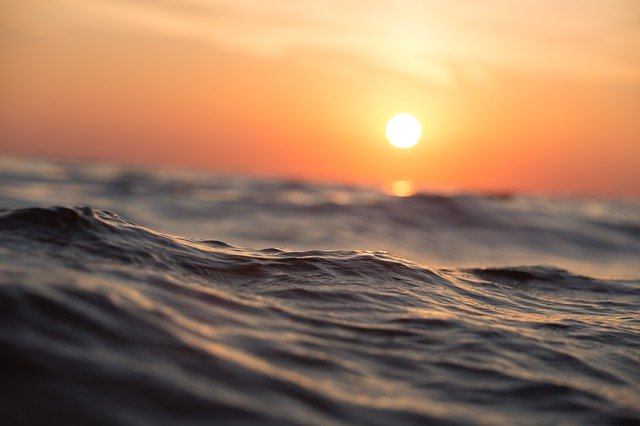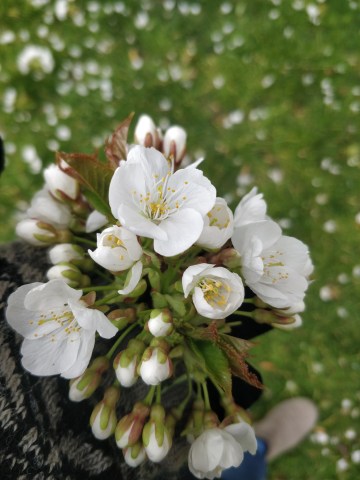The Parable Of The Flood

I am not a fan of using religious tropes and stories to communicate vital real-world issues. But I’m also being regularly reminded that sometimes the way I like to communicate (i.e. at great length and with a lot of citations) hasn’t got nothing on two thousand years of beautifully constructed storytelling traditions as embraced by parable-makers the world over.
Here then, with some literary hesitation, is a familiar take on an old but juicy parable, just for the hell of it.
Once upon a time, there was a man living in a house when the waters began to rise. “Oh hell,” he said, “this is bad and I feel dreadful about it. I hope science can save me.”
At that point, with the waters churning about his ankles, his neighbour stuck her head in through the door. “Hi, neighbour!” she said, thrusting some decidedly chic bamboo boxes his way. “I made some food for you.”
“How kind of you,” he replied, “What’s in it?”
“Oh, it’s lentil and chickpea curry with rice and pea and mint pastries. Gotta keep your strength up during the flood!”
The man’s nose wrinkled. “What, no meat?” he demanded. “Thanks but no thanks.”
“But we can have meat sometimes, it’s just that these…”
“Goodbye, neighbour!” he trilled, slamming – or rather, slushing the door shut in her face, as the water really was starting to push against him now. She hammered on it from the other side, calling out ‘are you sure’ and ‘but the water is rising!’ and so on. “It’s really very nice of you, but I am waiting for science to save me!” he hollered back, before retreating to his sofa in the hope his weight might keep it from floating too far from the TV.
By the next day, the water had risen high enough that the man was forced to retreat to the upper floors of his house, where he could at least entertain himself with de-cluttering some of that stuff he’d just sorta put in corners over the years. “I don’t remember why I bought this,” he mused, as he waded through boxes, “But I’m sure I had a reason.”
Then a head bobbed by outside the window, popping in and out of view in a really rather distracting manner. He opened the window just far enough to see who it was out there, to see another neighbour on a yellow dinghy, waving from outside.
“Hi neighbour,” said the man on the dinghy, “Looks like your power’s gone and the water is rising.”
“That’s alright – science will save me.”
“Can I offer you some electricity from the community wind farm?” asked the neighbour, merrily holding out a long blue cable with a generosity that frankly trumped his sense of electrical safety.
The man’s lips turned down into a slow, ponderous scowl. “I don’t think so,” he said at last. “Everyone knows that renewable energy costs too much and even if we could use, who’d pay for it?”
“But it’s literally here and free,” the neighbour exclaimed, as the power cable drooped limply in his arms. “It’s literally energy from the air and the sun.”
“Yes, but how did you build your turbine?” demanded the man. “How’d you afford it?”
“Well, if I’m honest – and please don’t take this the wrong way – I did an audit of everyone in the village and realised that of the one hundred of us, there was one person who earned more in the first seven days of the year on stocks and shares alone than everyone else earned in an entire year’s labour, and I… don’t be mad… I taxed him. Just a bit. Just so that he earned more than everyone else in like, four months, instead of seven days. And that paid for our community wind turbine, this lovely dinghy and also the local am dram group! I played Horatio!”
“That sounds a lot like stifling entrepreneurship and punishing people for being successful,” mused the man, “And anyway, I don’t like am dram. Science will save me!”
His neighbour knocked politely on the window again, his voice muffled by the glass, but the man didn’t listen. At the end of the day types like that, though they meant well, weren’t really of a practical nature, and the man still had some de-cluttering to do.
By the next day the waters had risen so high that the man had been forced to climb out onto the roof. As the tide swirled wildly about his feet in an eddy of mud and broken branches, a firefighter on a lifeboat sailed by. “Hi there!” said the firefighter. “You seem to be stuck – can I help you?”
The man looked down at his house with some regret, but even he was forced to admit that things weren’t going well. “Yes please,” he said at last, reaching out tenuously towards the firefighter’s hand. “Just for a little while.”
“No worries! We’ll get you to the refugee centre and…”
The man snatched his hand back. “Refugee centre? I’m not a refugee!”
The firefighter looked from the flooded land all around, to the man huddled against his chimney breast as the water lapped at his feet. “Uh…” he began, for ultimately he was a practical man with places to go and stuff to do, and wasn’t really up for handling this kind of nonsense.
“I’m not a refugee!” barked the man. “Refugees are just people looking for opportunity! Just you wait – though the town is flooded and my house is destroyed, science will save me!”
“Wow, right, a lot of things just happened there,” mused the firefighter. “Are you sure I can’t give you a lift?”
The man’s reply was alas, a little too rude to render at this time, and so with a sad shake of his head, the firefighter sailed away.
The next day the man drowned.
Now, technically there is no evidence to support the hypothesis that after death anything much other than the natural process of decay and reclamation of his corpse by the forces of nature unfolded, but as the last glimmers of neural processing faded from the entwined glory of the man’s brain, he did take the time to holler: “Oi, science! Weren’t you supposed to bloody save me?”
And science, looking really rather tired in a dirty white coat and an old Star Wars t-shirt, said: “FFS, my dude. We sent you sustainable agriculture and healthy eating. We sent you renewable energy owned by your local community. We didn’t actually send you emergency services – that’s more of a sociology thing – but if we could have, we would have, ‘cos that’s just how fluffy we are. We sent you everything you needed to stop the flood, but we are not almighty. You had to choose.”
“Well shucks,” muttered the man, as the last vestige of consciousness faded from behind his eyes. “If only someone had said….”





